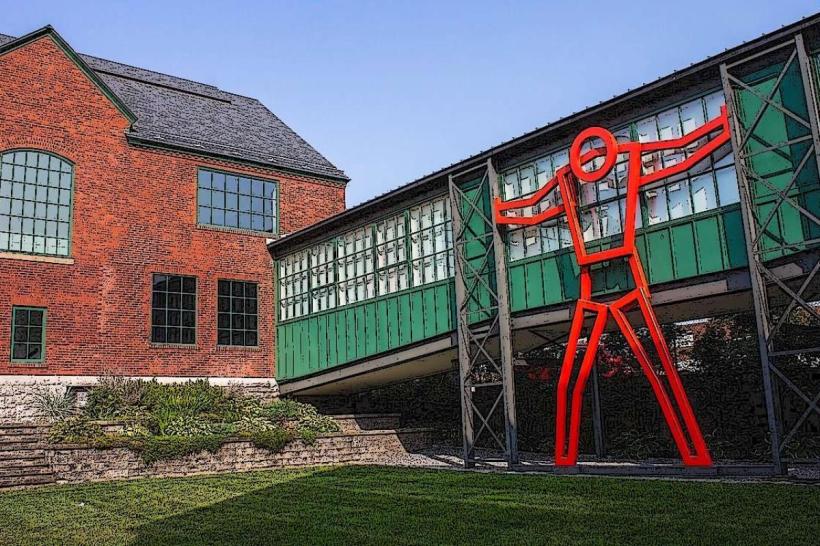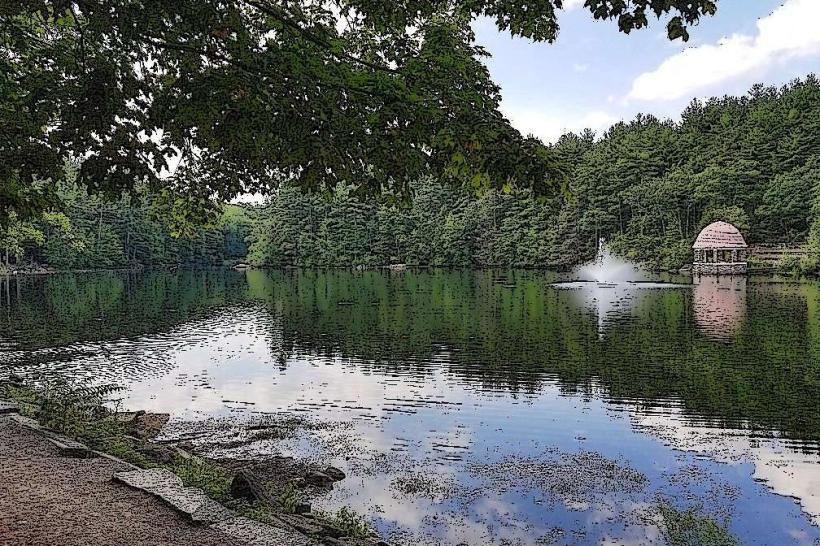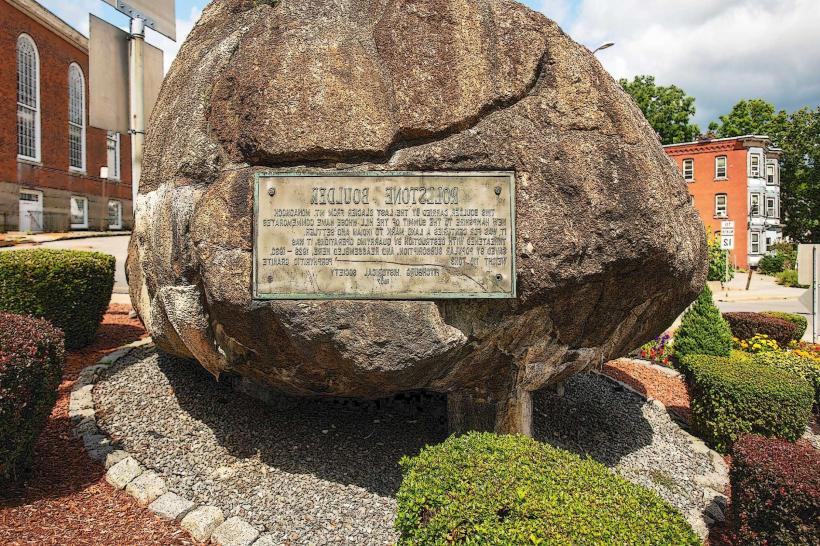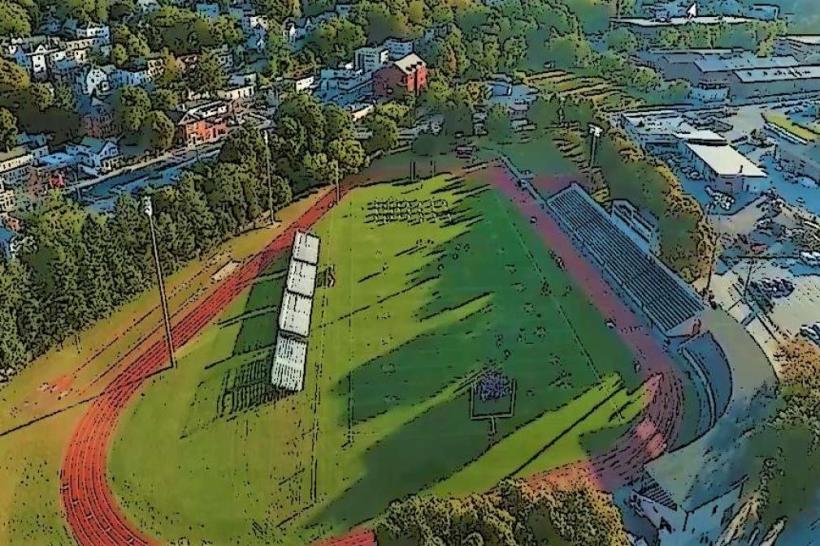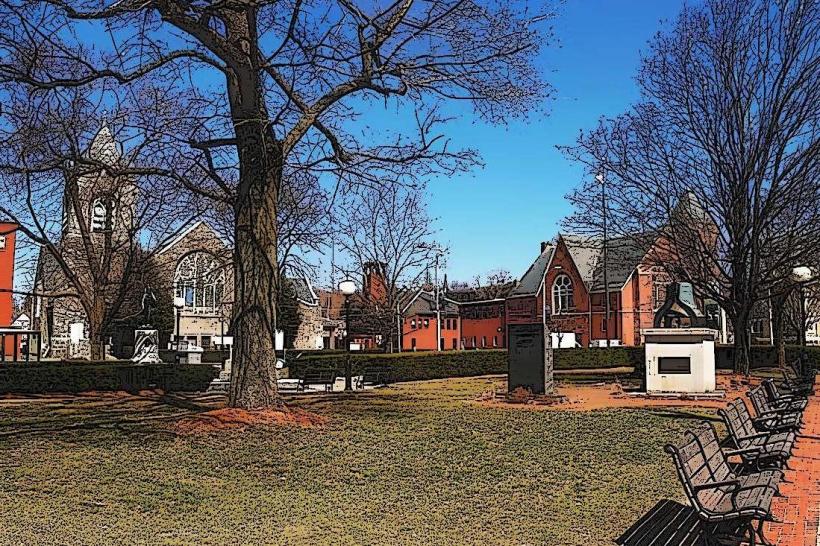Information
Landmark: Fitchburg Historical SocietyCity: Fitchburg
Country: USA Massachusetts
Continent: North America
Fitchburg Historical Society, Fitchburg, USA Massachusetts, North America
The Fitchburg Historical Society is a nonprofit organization dedicated to preserving, documenting, and promoting the rich history of Fitchburg, Massachusetts. Established in 1892, the Society has played a crucial role in safeguarding the city’s heritage through the collection of artifacts, archival materials, photographs, and historical records that span the social, industrial, cultural, and political evolution of Fitchburg.
Founding and Mission
The Society was founded by James F.D. Garfield, his wife Theresa Garfield, and their close associate Eleanor Fraser West. Their vision was to create a public institution that would collect and protect historical materials related to Fitchburg, ensuring that future generations could access and learn from the city’s past. From its inception, the Society has operated as a self-sufficient nonprofit entity, relying on memberships, donations, and fundraising efforts to sustain its mission.
The core mission focuses on preservation, education, and community engagement, emphasizing accessibility to local history for residents, researchers, educators, and visitors.
Location and Architectural Significance
The Fitchburg Historical Society is housed in the Phoenix Building, located at 781 Main Street, in close proximity to Fitchburg’s Upper Common area. Constructed in 1912, this building is architecturally significant and an excellent example of Georgian Revival style. Designed by Henry M. Francis, a notable regional architect, the Phoenix Building features classical proportions, brick facades, and refined ornamental details. It was recognized for its historical and architectural value by being added to the National Register of Historic Places in 2003.
The Phoenix Building serves as both a repository and a public museum, hosting permanent and rotating exhibits and providing space for research and educational activities.
Facilities and Collections
The Fitchburg Historical Society maintains several key facilities within the Phoenix Building to support its activities:
George R. Wallace, Jr. and Alice Wallace Exhibition Hall: This space hosts rotating exhibitions that explore diverse themes related to Fitchburg’s industrial development, cultural heritage, notable personalities, and community stories. Exhibits often include artifacts, photographs, documents, and multimedia presentations, creating immersive educational experiences.
Arthur Lowe Library: The Society’s research library is a vital resource for historians, genealogists, students, and the public. It houses a comprehensive collection of local history books, newspapers, city directories, maps, and specialized genealogical materials. The library supports detailed historical research on families, businesses, and social institutions in Fitchburg.
Crocker Center for the Study of Fitchburg History: Dedicated to in-depth scholarly research, the Crocker Center fosters the study and publication of Fitchburg’s history. It supports collaborations with historians and educational institutions and manages archival preservation efforts.
Archival Holdings and Research Services
The Society’s archival collections are extensive, featuring:
Photographs: Thousands of images documenting Fitchburg’s neighborhoods, architecture, industry, and everyday life from the 19th century to the present.
Manuscripts and Documents: Personal papers, business records, municipal documents, and letters that provide insight into the city’s economic and social history.
Artifacts: Objects ranging from industrial tools and household items to memorabilia connected to local organizations, events, and individuals.
Genealogical Records: Vital records, family histories, and cemetery records supporting genealogical research for individuals tracing Fitchburg roots.
The Society offers research assistance to visitors during public hours and by appointment. Staff and volunteers help guide users through collections, making it a hub for both casual inquiries and scholarly research.
Community Engagement and Education
The Fitchburg Historical Society is deeply involved in community education and cultural programming:
It organizes public lectures, workshops, and events that highlight historical topics of local interest.
Collaborates with schools to provide educational programs and field trips, promoting awareness of Fitchburg’s heritage among younger generations.
Publishes newsletters and special publications that document ongoing research, events, and historical narratives.
Facilitates membership programs that foster community involvement and support. Members receive benefits including early access to events, discounts on publications, and regular updates about Society activities.
Accessibility and Visiting Information
Location: 781 Main Street, Fitchburg, MA 01420, within the historic Phoenix Building.
Hours:
Monday & Tuesday: 10:00 AM – 4:00 PM
Wednesday: 10:00 AM – 6:00 PM
Closed on most federal and state holidays.
Appointments: Available outside regular hours for research and special visits, accommodating scholars or individuals with specific needs.
Digital Presence and Resources
The Fitchburg Historical Society maintains an online presence through its official website, providing access to:
Information on current and upcoming exhibits and events.
Resources for genealogical research and historical inquiries.
Details on membership and ways to support the Society.
Digital archives and select online collections to expand access beyond physical visits.
Summary
The Fitchburg Historical Society stands as a cornerstone institution for preserving and interpreting the history of Fitchburg, Massachusetts. Its founding in the late 19th century set the stage for over a century of dedicated archival stewardship, public education, and cultural enrichment. Housed in an architecturally significant building, the Society offers comprehensive facilities including exhibition halls, a specialized library, and research centers. Its rich collections, community programming, and commitment to accessibility ensure that Fitchburg’s history remains vibrant, accessible, and relevant to both residents and scholars alike.

